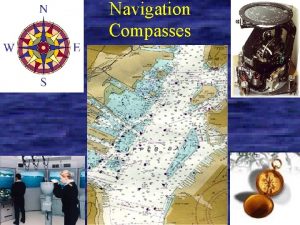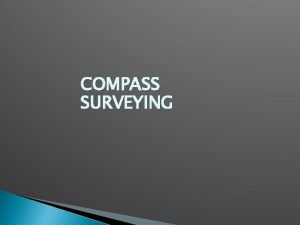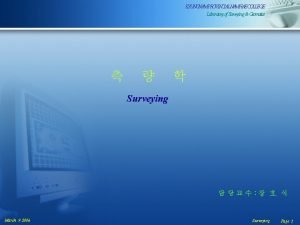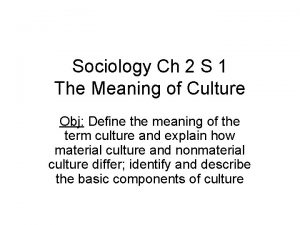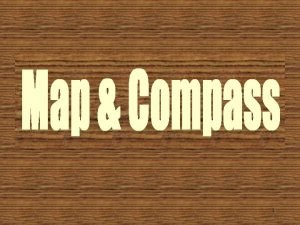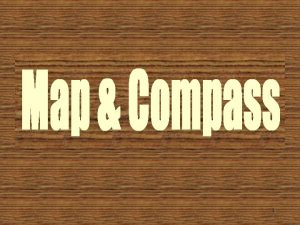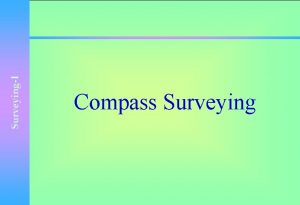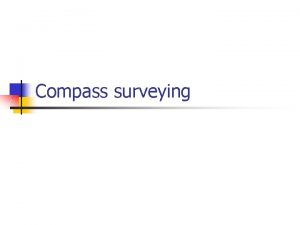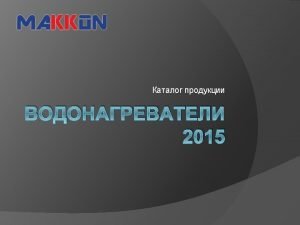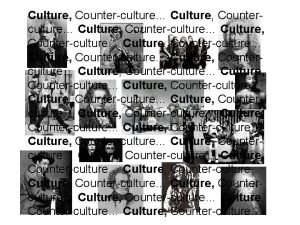Culture Compass On Line An introduction March 2006








- Slides: 8

Culture Compass On. Line An introduction March 2006 Trompenaars Hampden-Turner Culture for Business All materials © THT 2006 www. thtconsulting. com

Overview 01/ What is the Culture Compass On. Line? 02/ A typical process from the user perspective 03/ Key Features 04/ Benefits 05/ Results 06/ About Trompenaars Hampden-Turner

01/ What it is Culture Compass On. Line (CCOL) is a web-based e-learning application aiming at increasing the cross-cultural awareness and skills of the individual user. Users will be able to do at their own pace and in their own time the following : • Complete an on-line introduction to the basic elements of culture; • Complete a short individual questionnaire to help them identify their own cultural orientations; • Get on-line individual feedback on their individual profile; • Compare their cultural profile to that of over 50 country averages, from our database of over 55. 000 managers and professionals; • Complete a number of self-tests to find out how well they can bridge these cultural differences

02/ Components of the Culture Compass On. Line Log on to Culture Compa ss On. Line Intro duction to Models of Culture Time estimate: 30 min Inter cultural Awaren ess Profile Questionnair e 30 min Individu al Feedba ck Online 30 min Re Country Comparisons 60 min ading and Resear ching 60 min S elf-Test 15 min

03/ Key Features • Highly interactive • Video and Audio clips • Pre- and post workshop modules • Low and variable cost per user • Entirely customized to : • your needs, • content level and -amount • experience level of the target groups, The blended learning approach allows a skilful combination of advance on-line preparation, classroom group and peer interaction, and individual follow-up and embedding opportunities.

04/ Benefits • Modularity of the learning processes • Flexibility and optimisation of the content to the client needs • Participants are in charge of their own learning • Universal access anytime anywhere • Just-in-Time Learning and immediate feedback • Reduced cost per individual participant, and overall cost to the company • Reduction of travel requirements • Low set-up costs, and variability of costs • Stratifying the needs of the different populations and participant groups • Speed of deployment • Effective monitoring of take-up

05/ Results The individual participant will get: • A sound and well-researched gap-analysis of cultural differences • An assessment of his/her skills to overcome these differences

06/ About Trompenaars Hampden-Turner • Trompenaars Hampden-Turner is a leading innovative center of excellence focusing on strategic intercultural management issues such as post-merger integration, globalization and corporate vision and values. • We aim to improve global effectiveness of organizations by providing solutions to reconcile cultural diversity through best practice consulting, training and publishing in intercultural management. • The basis of our approach is the 7 -dimension model of culture, described indepth in the best-selling publication “Riding the Waves of Culture” by Fons Trompenaars and Charles Hampden-Turner. • We have done over 15 years of research on dilemmas as a way of analyzing cultural processes, and have thereby developed unique methods for reconciling cultural differences and (business) dilemmas. • We are advising and training many of the world’s largest global companies.

